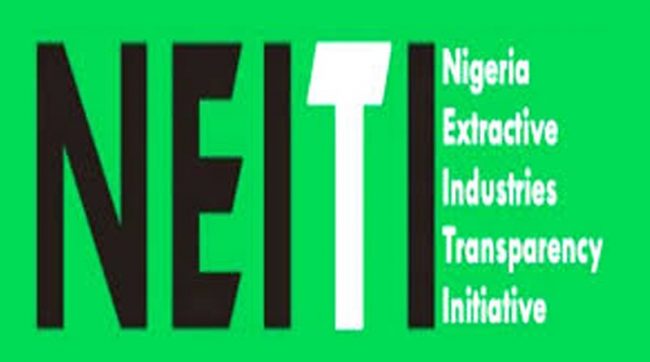The Nigeria Extractive Industries Transparency Initiative (NEITI) yesterday called on the federal government to immediately abolish the Excess Crude Account (ECA) and transfer the balance to the Nigerian Sovereign Investment Authority (NSIA).
The agency noted that one of the challenges towards Nigeria achieving and maintaining a healthy oil savings fund, was constitutional constraints, as well as the difficulty in achieving centralised savings in a regime of fiscal federalism as represented by the ECA.
NEITI made the call in its latest policy brief, titled: “Insulating Nigeria from Perennial Oil Price Volatility,” in which it urged the government to adopt sustainable strategies for robust fiscal cover for the Nigerian economy during periods of cyclical oil price shocks.
It recommended that Section 162 (1) of the 1999 Constitution should be amended to mandatorily allow for part of the oil earnings to be saved, adding that the 0.5 per cent stabilisation fund and the ECA should be terminated.
“The Oil Price-based Fiscal Rule (OPFR) where revenue in excess of oil price benchmark is saved should be abolished and replaced with mandatory savings of a percentage of daily oil production.
“This will remove the constant political jousting about oil benchmark price and quantity,” the policy brief said.
It added that when proceeds from the percentage of daily oil production are transferred to the NSIA, the funds should be invested in convertible instruments while the NSIA’s stabilisation fund should be increased from 20 per cent to 40 per cent and dividends from its earnings shared every year.
According to the brief, increasing NSIA’s stabilisation fund and sharing the dividends from investments will give comfort to the states and local governments to support the constitution amendment and the scrapping of ECA.
As a second strategy, NEITI urged Nigeria to wean itself off its dependence on oil revenue, but acknowledged the efforts of government in this direction.
However, it noted that a lot more needed to be done in order to boost non-oil revenue and export to improve foreign exchange earnings.
Established in 2004, the ECA’s primary objective is to protect Nigeria’s planned budgets against shortfalls caused by the volatility of crude oil prices, but it has recently become a source of friction between the different tiers of government.
NEITI said the present efforts by the federal government to correct the distortions in the economic structure should be intensified, adding that the ease of doing business should be improved with incentives and reforms put in place to further attract foreign and local investors in areas where Nigeria has a comparative advantage.
It also called for investments in physical and human infrastructure to be increased so as to reduce the cost of doing business.
“A look at oil revenue as a percentage of total federation revenue showed that from 1981 to 2014, oil revenue consistently accounted for about 65 per cent to 85 per cent of total federation revenue.
“It is only in recent years (2015 – 2018) that oil revenue was below 60 per cent of total revenue. And this can be attributed to low oil prices and increased efforts to boost non-oil revenue.
“Further analysis also showed that revenue from oil export has consistently contributed over 90 per cent of total exports revenue, indicating the dominance of the oil sector in the generation of foreign exchange,” it stated.
NEITI noted that though dependence on oil is reducing, oil still accounts for about 50 per cent of government revenues and over 80 per cent of exports and foreign earnings, which make Nigeria highly vulnerable to oil price shocks.
It said: “Beyond surviving the latest oil price slump largely occasioned by COVID-19, Nigeria needs a sustainable strategy for coping with future oil price shocks.”
It urged the country to “maintain a robust ‘rainy day’ fund, the size of which should reflect not only the volume of revenues from mineral resources, but also the size of the national economy.”
“This savings fund is supposed to help Nigeria smoothen spending, form a hedge against the cyclical volatility of oil prices and keep part of the accrued benefits for the future generation among other reasons” it added.
While Nigeria has an oil savings fund, NEITI stated that the savings is too small to serve its intended purposes.
“Blocking leakages and maximising opportunities in the sector will help in increasing government revenues and the contribution of the sector to national productivity.
“Price volatility is a constant feature of the oil market, exposing oil-dependent countries like Nigeria to regular economic crises when oil prices tumble,” it said.
It noted that though price slumps have always been accompanied by severe pains that linger beyond the price crash, COVID-19 pandemic will eventually, be tamed and oil prices will go up again, but reminded that the circle of shocks will continue.
It called for the elimination of crude oil and refined product theft, full deregulation of the downstream sector and boosting gas production and utilisation.
Other recommendations included: fast-tracking the passage of the Petroleum Industry Bill (PIB), institutionalising transparency in the oil and gas sector as well as systematic and proactive disclosures in areas of contracts, productions, revenues, commodity trading, beneficial ownership, bid rounds and production costs, among others.
NEITI’s policy brief also recommended a level-playing field for all operators, including Nigeria National Petroleum Corporation (NNPC) and a more deliberate strategy for boosting local refining capacity so as to reduce the pressure on external reserves from the importation of refined products while positioning Nigeria to meet the refining needs of the Africa sub-region.
Source: THISDAY












